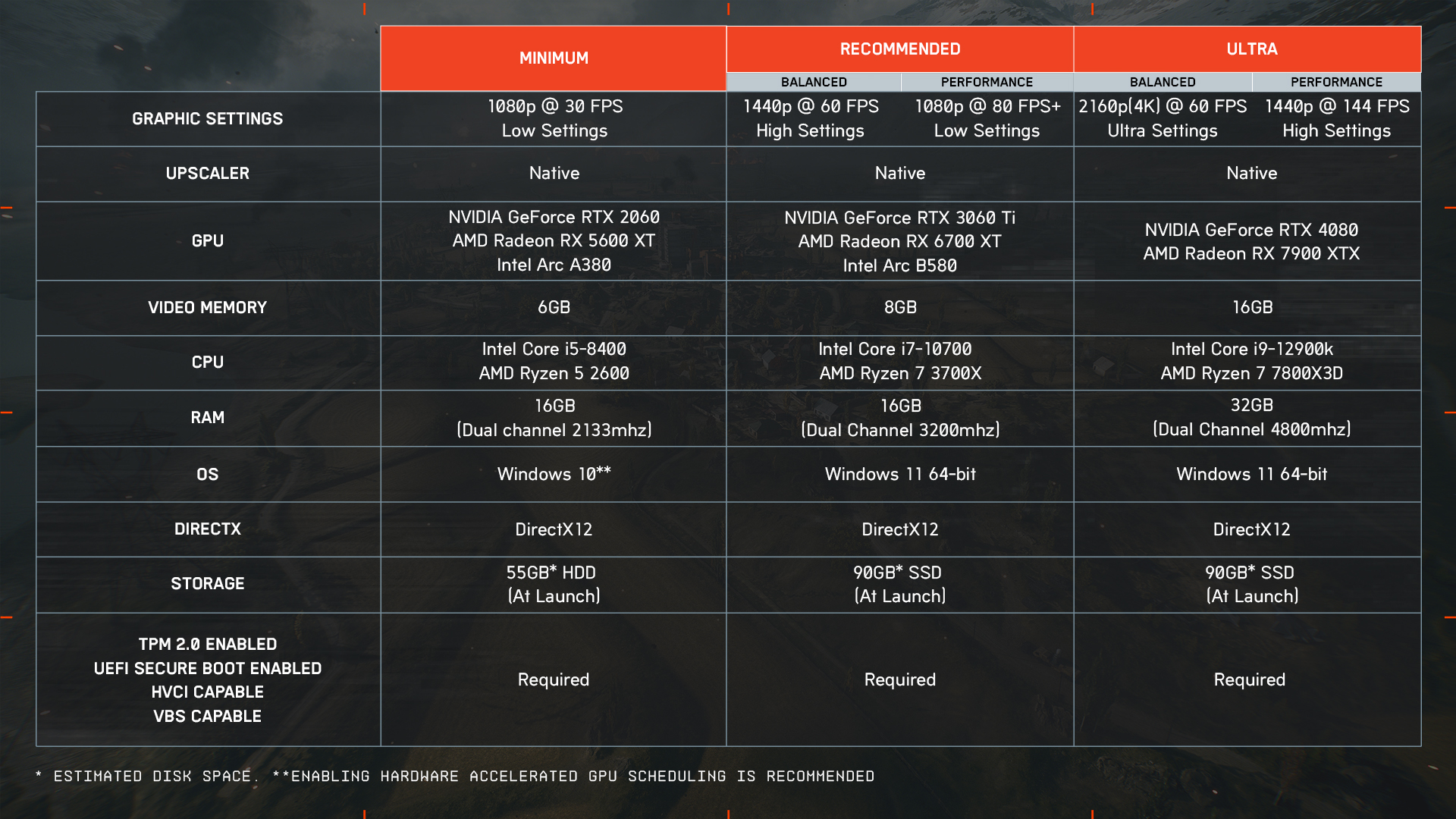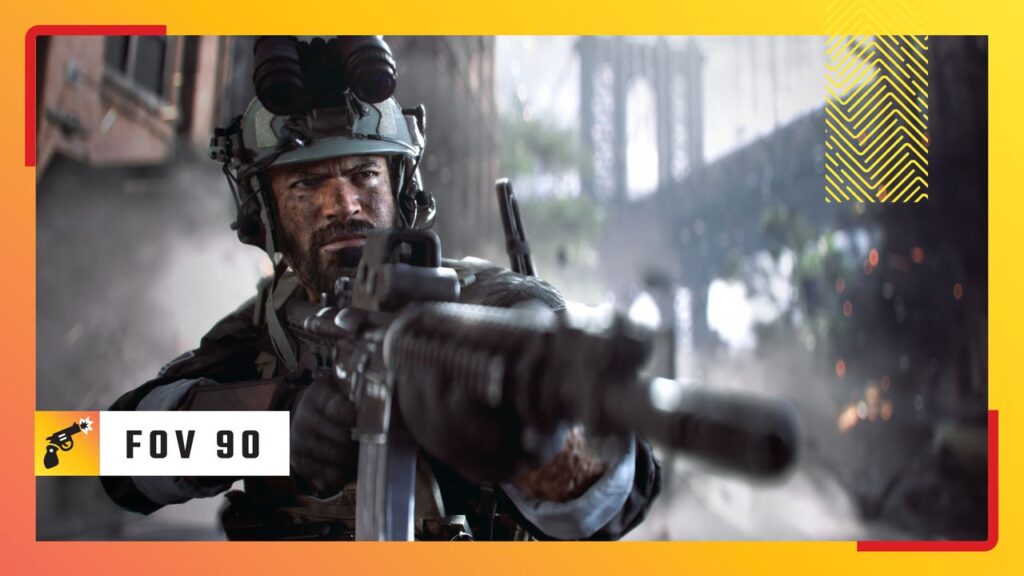
Welcome to FOV 90, an FPS column from staff writer Morgan Park. Every week, I’ll be covering a topic relevant to first-person shooter enjoyers, spanning everything from multiplayer and singleplayer to the old and the new.
It sucks to acknowledge, but we’re living in a new age of crappy PC ports. “It sure seems like there’s something wrong with practically every major big-budget release on PC these days,” senior editor Wes Fenlon wrote over two years ago. Sadly, not much has changed: The plague of stutters, crashes, and poor framerates has spoiled the launches of some of the biggest games of 2025.
There’s no one culprit for this widespread problem, but the industry’s obsession with graphics is looking guiltier every day. Devs are increasingly happy to sacrifice acceptable performance at the altar of Unreal Engine 5’s bells and whistles, serving up games that look slightly better than a handful of years ago (if you squint, and provided you drop a grand on a new video card).
The pinnacle of graphics has gotten so stagnant and futile that PC gamers are eager to celebrate games that put performance first. And of course, it’s the multiplayer FPS leading by example.
One of the biggest stories around Battlefield 6, undeniably the most anticipated FPS of the year, is its “obsessively optimized” performance. You’d think a massive-budget FPS with huge maps, dynamic destruction, and realistic art would confidently demand a card that ends with “80” to reach feel-good shooter frames, but Battlefield Studios has opted for hardware accessibility at every turn.
The recommended hardware target is a 3060Ti (that’s recommended, not minimum!), upscaling is deliberately optional, and there’s no ray tracing. That’s practically unheard of at this scale in 2025, but it’s especially surprising for Battlefield, a series that’s historically embraced fancy graphics if it meant alienating some players.

“We wanted to focus on performance,” technical director Christian Buhl told ComicBook about the decision to drop ray tracing in Battlefield 6. “We wanted to make sure that all of our effort was focused on making the game as [optimized] as possible for the default settings and the default users. So, we just made the decision relatively early on that we just weren’t going to do ray-tracing and again, it was mostly so that we could focus on making sure it was performance for everyone else.”
When I spoke with Buhl in August about upscaling, he offered the refreshing perspective that DLSS shouldn’t be a crutch that allows Battlefield 6 to run acceptably.
“We want Battlefield 6 to run great without [DLSS], and we want to give you the option to use it if you want. There are pros and cons to a lot of those different technologies … Our goal is for everything to be performant without a lot of extra stuff,” he said. “I believe all of our default performance targets are not with [upscaling] on.”
The result? Battlefield 6 is gorgeous by all metrics that matter—it might not win a screenshot war against RTX-infused hair follicles, but it’s still the best-looking game of its scale that I’ve played this year simply because it runs like a dream on my geriatric 2080 Super. There is real value to booting up a game that feels like it was made with your machine in mind. When millions of people flooded into the Battlefield 6 beta in August, nobody complained about baked lighting or dirt textures, but they did praise how smoothly it played.
As much as I want to believe BF Studios’ pivot to performance was informed by sentiment, I suspect it had more to do with EA’s dogmatic pursuit of Call of Duty’s audience. It’s easy to take it for granted, but Call of Duty really is the performance standard: the army of developers plugging away at those games every year doesn’t get enough credit for making them run on anything remotely modern.
But good performance shouldn’t just be an FPS concern. In a world where most PC gamers are priced out of upgrades and folks are stretching their hardware as far as it’ll go, “this runs great” is a much better selling point than ray-traced reflections and global illumination. The game makers who wake up to that fact will reap the rewards.




Great to see a focus on performance in gaming! It’s always interesting to see how player preferences shape game development. Looking forward to more insights in the FOV 90 column!
Absolutely! Player preferences can really shape the future of game development. It’s refreshing to see a game prioritize smooth gameplay, especially since a high frame rate often enhances the overall experience more than visual effects like ray tracing.
I completely agree! It’s interesting to see how prioritizing performance can lead to a more enjoyable gaming experience, especially in fast-paced FPS titles. Balancing visual fidelity with smooth gameplay is definitely the key to keeping players engaged.
Absolutely! Focusing on performance not only enhances gameplay but also allows for smoother experiences during intense action sequences. It’s a smart move that caters to both casual and competitive players alike.
I totally agree! Prioritizing performance can really make a difference, especially in fast-paced games where reaction time is crucial. It’s interesting how this approach can also appeal to a wider audience, including competitive players who rely on that edge.
Absolutely! A stable frame rate can enhance the overall gaming experience, allowing for smoother movements and quicker reactions. It’s interesting how developers are finally focusing on optimizing gameplay over just flashy graphics.
I totally agree! A stable frame rate really does make a significant difference in gameplay. Plus, with the focus on performance over graphics, it seems developers are finally prioritizing what players value most. It’ll be interesting to see how this trend shapes future FPS titles!
Absolutely! A stable frame rate not only enhances gameplay but also contributes to a smoother overall experience, especially in competitive scenarios. It’s interesting how developers are shifting focus to performance aspects, which can really elevate player satisfaction.
I completely agree! A stable frame rate really does make a huge difference. Plus, with the focus on performance, it allows players to fully immerse themselves in the action without distractions. It’s great to see developers prioritizing what gamers truly want!
Absolutely! A stable frame rate not only enhances gameplay but also reduces motion sickness for some players. It’s interesting how prioritizing performance over graphics can lead to a more enjoyable experience overall.
That’s a great point! A stable frame rate can really make a difference in how immersive the game feels. It’s interesting to see how developers are prioritizing performance over flashy graphics to cater to player preferences.